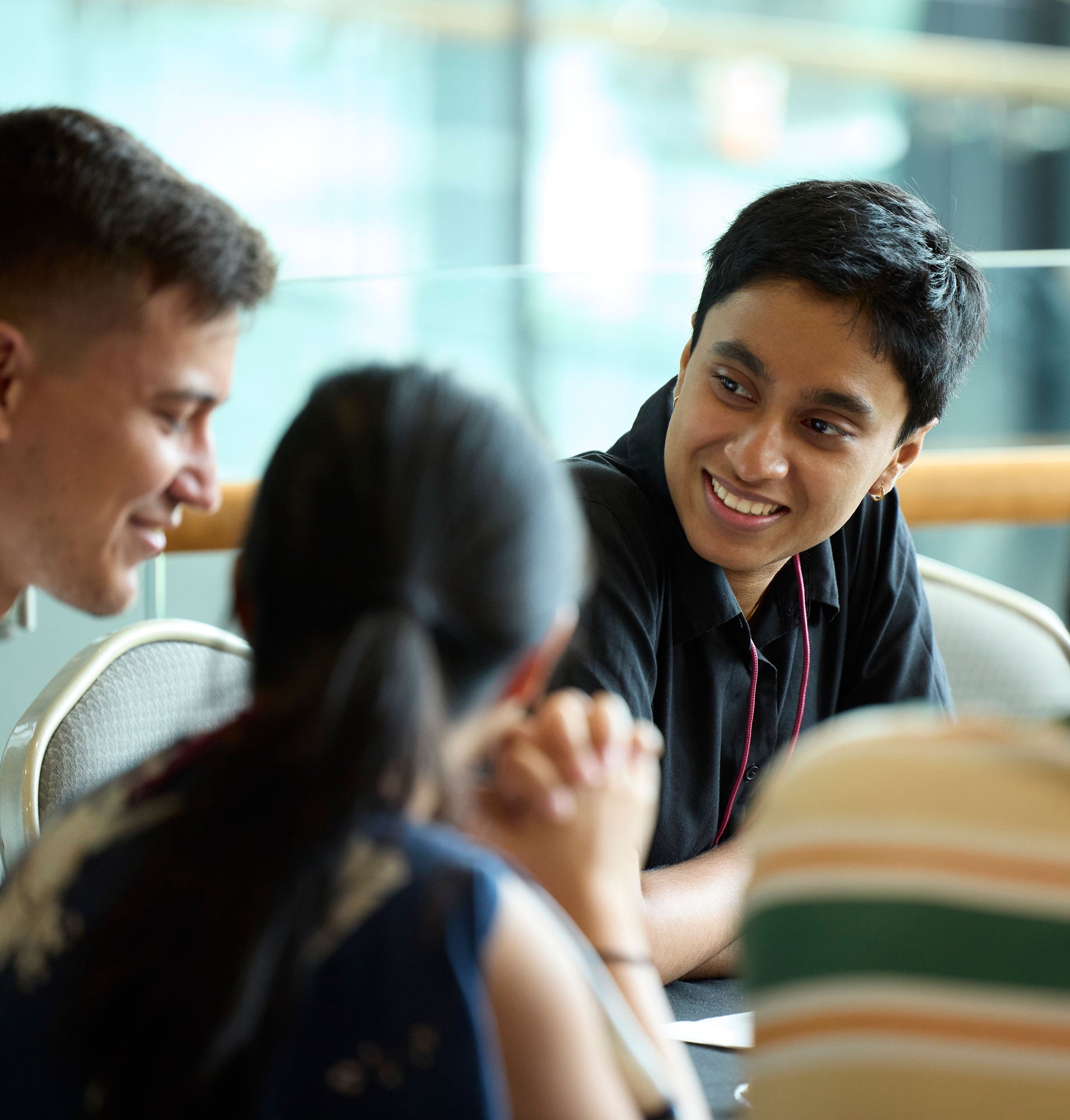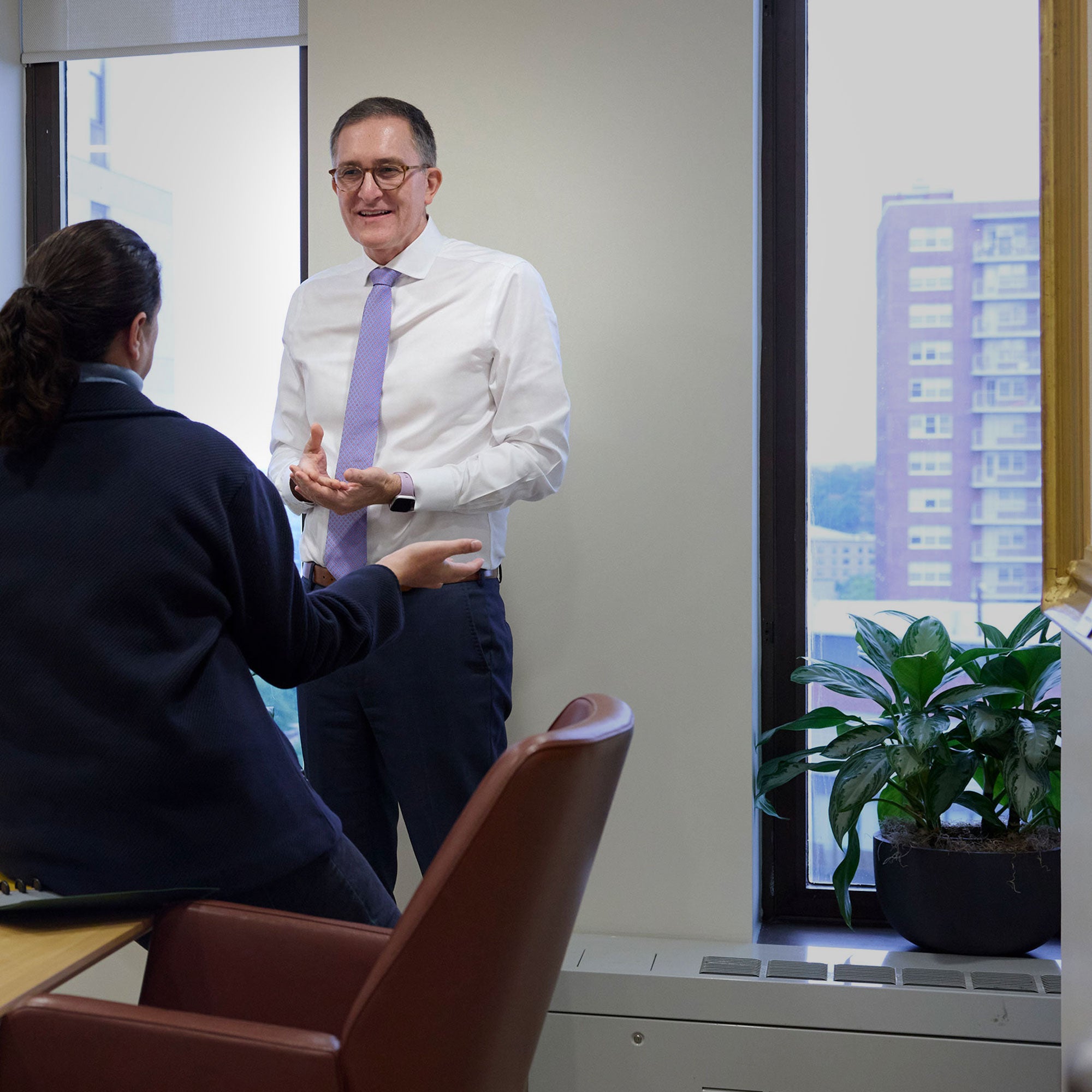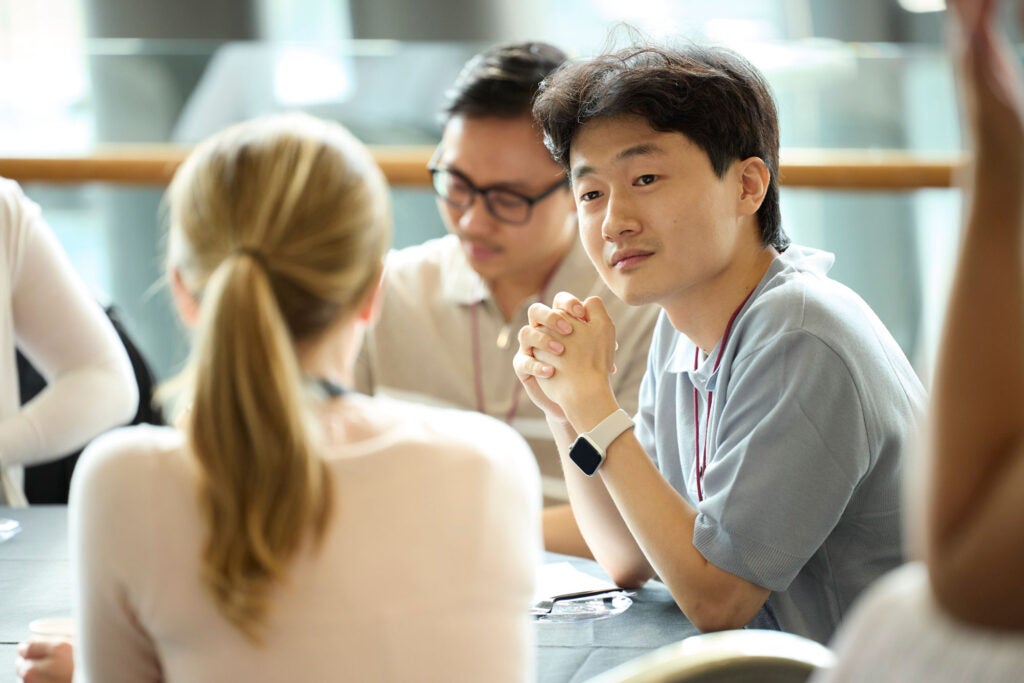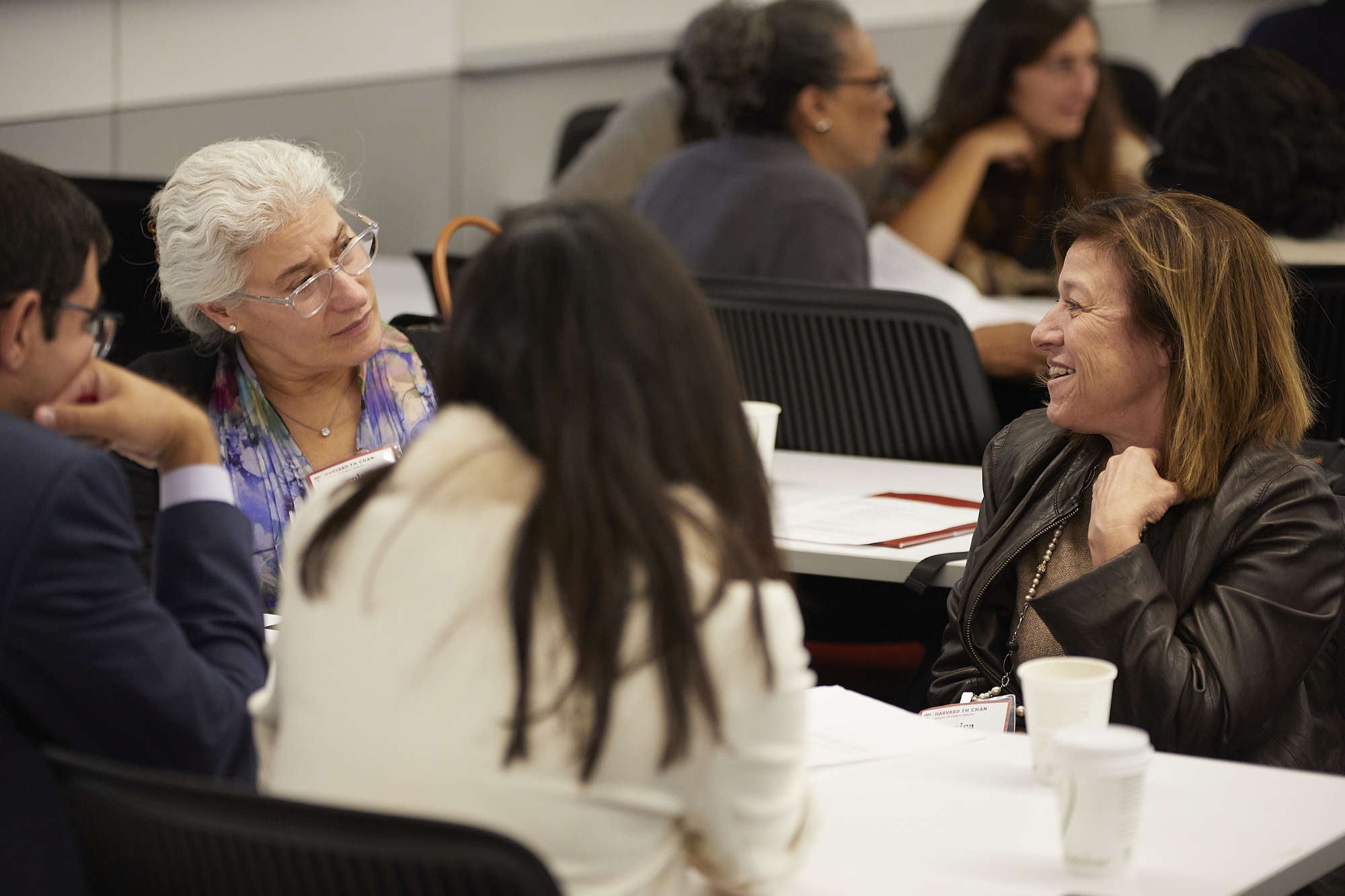Open Inquiry and Constructive Engagement
Harvard Chan School is committed to building a culture of open inquiry and constructive dialogue across differences. We advance our mission by supporting a free, respectful, and academically rigorous exchange of ideas, firmly grounded in science and scholarship.

The Power of Pluralism
Harvard Chan School is a remarkable place because of our remarkable community.
We welcome and support individuals with a broad range of lived experiences, cultures, identities, ideas, and perspectives, including students and scholars from more than 70 countries.
We aim to give all members of our community the skills to learn from one another and to navigate disagreements productively, approaching areas of difference with respect, openness, and humility while upholding the highest standards of academic integrity and scientific excellence.
That’s a crucial foundation for progress in public health—especially in our increasingly fragmented world.

A Culture of Mutual Respect
Everyone at Harvard Chan School should have the opportunity to contribute meaningfully to our mission.
To make that possible, we work to build a culture defined by respect, empathy, and the understanding that differences are a source of strength.
We take our Principles of Citizenship seriously as a foundation for our interactions with one another and with the outside world.

Opportunities to Learn and Grow
The Office for Community and Belonging (OCB) hosts regular workshops and forums designed to build community, reinforce our shared values, and build skills in constructive engagement across differences. The office serves all members of the Harvard Chan community: students, staff, trainees, faculty, and other academic appointees.
Harvard Chan LEADs (Learn and Engage Across Differences) supports programming to strengthen our commitment to pluralism. Activities have included dinners that bring together students, faculty, and alumni to talk about crossroads in their careers; a public health book club; and constructive dialogue training via a chatbot developed at Harvard Kennedy School.
The School’s Working Group on Constructive Engagement, made up of faculty, staff, students, and trainees, developed recommendations for strengthening a culture of open inquiry and respectful debate in classrooms, labs, and the community at large. The group will be working to implement those recommendations throughout the 2025-6 academic year.
The Harvard Chan Studio brings speakers with a wide range of expertise, views, and backgrounds to the School for lively discussions on public health topics. The Studio regularly collaborates with the Center for Health Communication to host programs that offer practical tips on effective communication across differences. Other programs model respectful conversations across differences on urgent issues such as climate change and Medicaid reform.
Harvard Chan Values in Actions Awards are given annually to a student, a staff member, and an academic appointee who embody the School’s values, including a commitment to open inquiry and constructive engagement.
